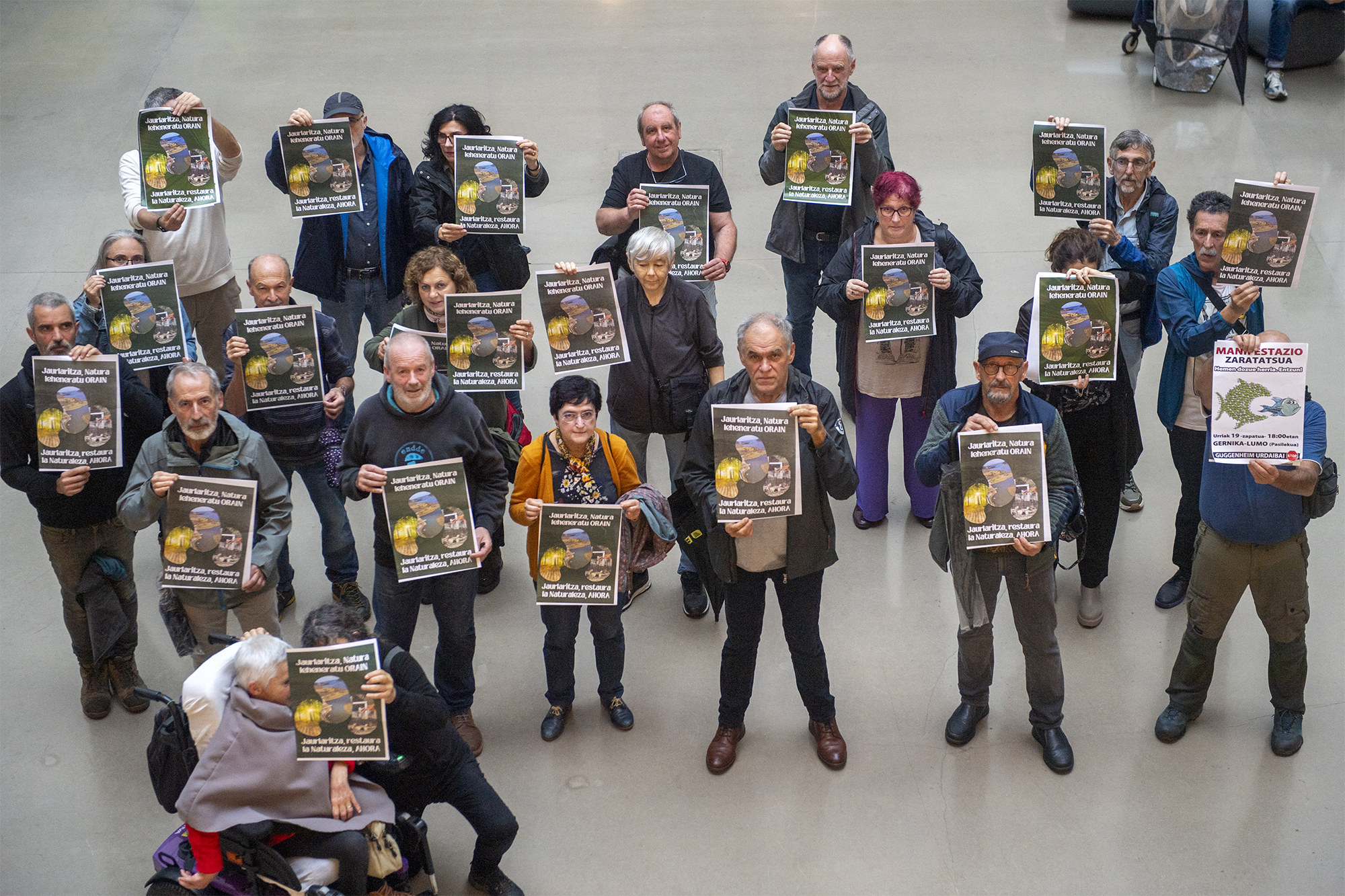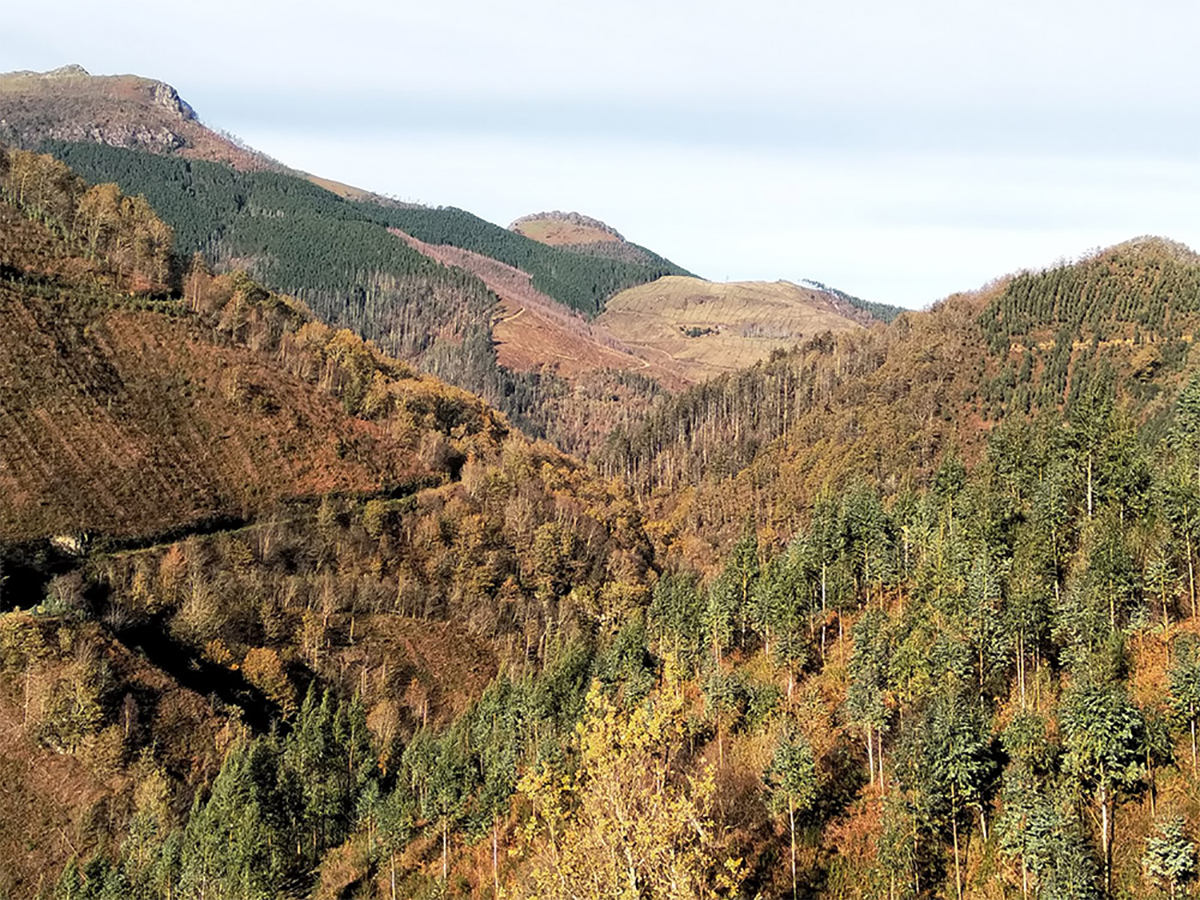
According to a regulation adopted by the European Union in August, 20% of degraded areas by 2030 should be returned to their previous state. That is why different actors have created the Basque Government document, restoring nature now, which has been publicly presented this Wednesday in Donostia-San Sebastián.

A broad representation of environmental and naturalist activists in Donostia-San Sebastián this Wednesday called for the Basque Government to take "exceptional measures" to identify and restore the degraded areas of Araba, Bizkaia and Gipuzkoa. The Government of Imanol Pradales should, in its view, give "priority" to the implementation of the new legislation that has been adopted in Europe.
Although the quote was fixed in the park of Cristina Enea, one of the lungs of Donostia, very dear to Gladys del Estat, finally by time the Live Forests platform, the coordinator Denon Berdeak, the peasant action Egurra eta Kandela, and representatives of the ecologist groups Eguzki eta Ekologistak, have been concentrated in Tabakalera. The Basque Government document has been presented at the hearing, restoring nature already, which, in addition to the five groups that have created the text, has the support of 22 other agents.
A long way towards compromises
On 17 August the Council of Environment Ministers of the European Union adopted the Nature Restoration Regulation. Member countries will therefore have to return 20% of degraded land and marine areas to their former state by 2030 and all ecosystems will be restored by 2050.
Member countries will have to return 20% of degraded land and marine areas to their previous state by 2030 and all ecosystems will be restored by 2050
Ekologistak Martxan recalled that international negotiations on restoring ecosystems have been long to reach international commitments. The COP15 Conference on Biodiversity, held in Montreal in 2022, approved for the first time the “goal of living in harmony with nature” by 2050.
This agreement, however, must face major threats and challenges such as the protection of natural spaces, the control of multinationals, the recognition of indigenous peoples and the recovery of nature.
The European Union has now adopted the Nature Restoration Regulation, in its biodiversity strategy, on the road to achieving this objective.

A slot
They have thus taken advantage of the "reschedule" of this regulation to call on the Basque Government to take measures, at least to comply with the "minimum aspects" of the regulation. Each group has made its own reading of the law and has demanded Lakua from different areas and perspectives.
They say that the Basque Government should take steps immediately, “without waiting” for the recovery plan being drawn up by the Spanish Government, because it has sufficient tools to do so.
Ekologistak Martxan believes that the Basque Government should take immediate steps, “without waiting” for the restoration plan being drawn up by the Spanish Government’s Ministry for the Ecological Transition, as it has sufficient tools to do so.
For the group of baserritarras Egurra eta Kandela, who works in the field of agroecology, the regulation requires that ecosystems be “healthy, bioplural and resilient”, and for this it is essential to move from an intensive productive system to the ecological.

The Threat of Tapia Law
But although the law is “good news”, they have also made nuances to him. The Eguzki Group, for example, has considered that if so far nature restoration projects have not been carried out “it has not been for lack of a law or regulation” and has set as an example what happened with the Lemoiz nuclear power plant or the Txingudi Plan, “it has been 30 years and still does not happen”.

The Denon Berdeak Group, for its part, has warned that “projects of greater public interest” – with the Basque rule known as the Tapia Law – can be imposed over environmental conservation.
In any case, they have also made proposals to the Basque Government: that the trees cover at least 10% of their area in the cities and their surroundings, guaranteeing the participation of citizens; creating a Law on Trees and Urban Green Areas; and paralysing all kinds of “arboricides”, “especially eucalyptus plantations that significantly degrade ecosystems and biodiversity”, says Baso Bizia.
At the hearing on Wednesday, the representatives of the five groups agreed on the need for the document to be disseminated in the peoples. This will also be addressed to local authorities.
Also in the municipalities, and on Saturday in Gernika
At the hearing on Wednesday, the representatives of the five groups agreed on the need to disseminate this document to the peoples. In order to do so, they will address the municipalities, not only in search of support, but also call for the adoption of measures in those matters that fall within their competence.
On the other hand, they have encouraged all citizens to join the demonstration that this Saturday will be held in Gernika under the motto Guggenheim Urdaibai Stop, as the mobilization comes “fully” with their claim to recover natural spaces.